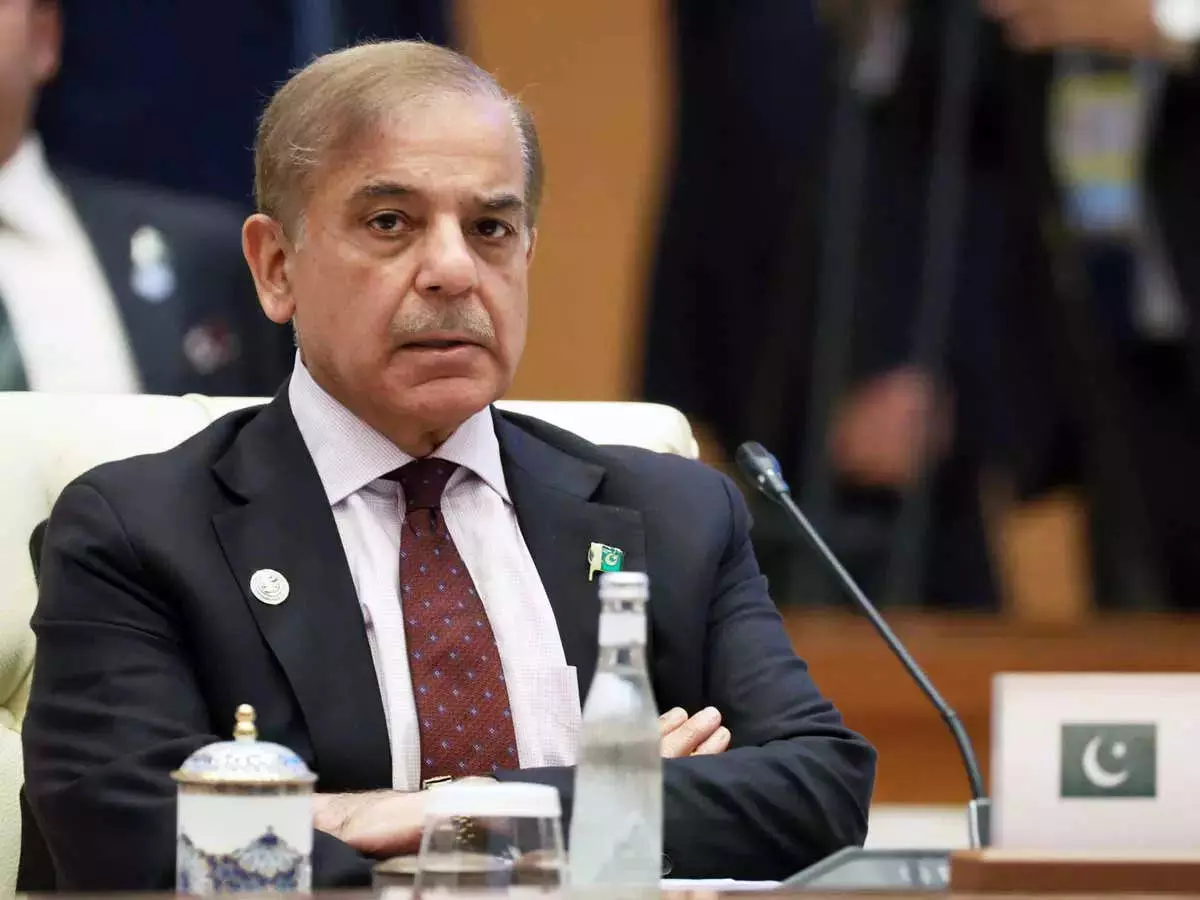On thin ice!
A multifaceted economic crisis, political challenges, potential resurgence of terror, and a precarious position on the external front have put Pakistan’s new government in a tight spot

The second Prime Ministerial term of Pakistan Muslim League–Nawaz (PML-N) leader, Shehbaz Sharif, is not at all a bed of roses. It’s a very tough road to tread, particularly in the economic sphere, which appears to be a real challenge. The country’s debt has increased to astronomical levels as Sharif has to negotiate with the International Monetary Fund (IMF) for a USD 6 billion bailout. Critics are already speculating that the new administration will not tax the rich class, which will not help overcome the financial crisis. Textile and other crucial industries are already in an economic mess. The government doesn’t seem to be in a hurry to provide subsidies for food prices, nor is it in a mood to address support prices for farmers.
On the political front, the PML-N-led coalition will continue to face irritants from the Pakistan People’s Party (PPP) amid developments regarding the appointment of Asif Ali Zardari as President. Additionally, Pakistan Tehreek-e-Insaf (PTI)’s decision to launch countrywide street agitations protesting Imran Khan’s incarceration and rigging & manipulations in the February polls will be a thorn in the side of the fragile government. It will be running with unease, and the armed forces, under whose watch the government will run, may also find it difficult to exercise daily oversight to direct government functioning. It’s a well-known fact that Nawaz Sharif will call the shots and remain the de facto Prime Minister, but he too may find himself out of sync in handling so many challenges that possibly seem insurmountable.
Crucially, terror is one critical issue which Shehbaz Sharif may find really hard to handle. Tehreek-e-Taliban Pakistan (TTP) is in no mood to slow down its terror offensive. In fact, reliable sources indicate that it might, in all likelihood, intensify its Pakistan-centric operations, thus compounding problems for Shehbaz which are perhaps beyond his comprehension and redressal. Then, the Taliban is unlikely to relent in changing its tough posturing against Pakistan. Deportation of Afghans from Pakistan and the relations of unease will not, in any eventuality, head towards softening of ties on the terror front. This will further embolden the home-grown terror groups who were put under a “tight leash” following Financial Action Task Force (FATF) monitoring. Pakistan remained on toes to avoid limping back to the grey list again. It appears only a matter of time when the domestic terror outfits would strike again in pursuit of their regressive ideology. There are substantial evidence of Islamic State of Iraq and Syria (ISIS) remnants trying to radicalise the youth for more hardened religious indoctrination, which, if not checked effectively, may add to the challenges of the government. This, therefore, remains an alive issue.
Meanwhile, Shehbaz Sharif will find the going uncomfortable on the country’s external front. The Islamic bloc doesn’t seem as warm towards Pakistan anymore, possibly due to the fact that it has become a crying baby seeking financial assistance every now and then. With no substantial agenda in hand, dealings with Saudi Arabia, the UAE, and other Gulf countries are likely to be lukewarm. Despite sharing a common religion, the expected bonhomie may just amount to routine bilateral ties. Turkey will also engage in a matter-of-fact manner, more by default than with any robust agenda. China, of course, will remain a friend. However, much will be determined after Shehbaz Sharif undertakes a trip to Beijing in the not-so-distant future to reinforce ties between the two all-weather allies.
All these factors notwithstanding, it will be interesting to see how the US deals with the new Pakistani political dispensation. Pakistani watchers feel that the army has a relatively more meaningful role to play than the civilian government. With the US election scene steadily heating up and Donald Trump showing signs of electoral promise, any US policy change or otherwise towards Pakistan merits close attention as it will have far-reaching implications in the region. The same holds true for the EU and other Western countries.
Regarding relations with India, Nawaz Sharif was thought to be softening his country’s stance, especially on the Kashmir issue, in his previous term. After his swearing-in ceremony, Shehbaz did touch upon the Kashmir issue, ostensibly under an army script, to keep the issue alive and to demonstrate to his countrymen that Kashmir is close to the heart of Pakistani political leadership. Yet, this could be a superficial exercise for domestic consumption only. Shehbaz lacks the political or diplomatic depth to deal with issues concerning India. This is stated in relation to Nawaz Sharif who was a veteran Prime Minister as far as dealings with India were concerned. Hence, this could be a handicap for the new Prime Minister. It would, therefore, be advisable if Shehbaz takes a lesson or two from his elder brother to engage India on Kashmir and other subjects, so that hostility and cross-border acts of terrorism targeting India become a thing of the past. In the changing scenario, a more pacifist attitude by Pakistan in handling India may be in its own interest, considering that India’s political, economic, and military might are realistic factors that Pakistan cannot afford to overlook.
The writer is a retired IPS officer, Adviser NatStrat, and a former National Security Advisor in Mauritius. Views expressed are personal



